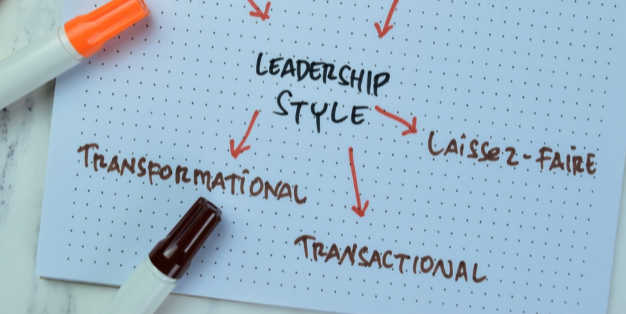Communication is hard. Even in the best of circumstances, every interaction carries not just the message we intend to send but also our own assumptions, our students’ assumptions, and the ever-growing complexity of language and tone, not to mention the medium itself.
This complexity only multiplies in today’s higher ed environment, where faculty and staff are expected to reach students across multiple platforms — LMS announcements, emails, texts, apps — with messages that range from compassionate to corrective. Meanwhile, the rise of EdTech solutions promising “more reach” has, ironically, made it harder to ensure our messages are received in the way we intended. After all, reach does not equal resonance.
So how can we cut through the noise and actually connect with students?
Communication theory may sound abstract, but it offers a powerful lens for improving how we show up in these interactions. Becoming familiar with two frameworks in particular — Expectancy Violations Theory and Family Communication Patterns Theory — can help us better understand both ourselves and the diverse students we serve.
Want to Know Why Some Student Emails Irritate You and Others Inspire You?
Expectancy Violations Theory (EVT) can help answer that question (Burgoon 1978). EVT helps explain why we react so differently to similar messages depending on who’s delivering them and how.
Very basically, EVT says we form expectations for how interactions will unfold. When those expectations are violated, we automatically shift attention to the violation and to the person who caused it. But we don’t all interpret those violations the same way. Whether we view them as pleasant surprises or annoying disruptions depends on two factors: (1) violation valence, or how positive or negative we feel about the behavior itself, and (2) communicator reward valence, or how much we value the person who violated our expectation.
In other words, if a student I perceive as motivated and respectful asks for an extension, I might feel proud they trusted me enough to ask. But if the same request comes from someone I’ve perceived (rightly or wrongly) as disengaged, I may feel frustrated even if the circumstances are the same.
Reflecting on EVT can help us surface our biases, hold ourselves accountable to equitable treatment, and better understand our own reactions. If you’ve ever wondered why you’ll go above and beyond for one student but feel resistant to another’s similar request, EVT might be a good place to start.
Want to Know Why Some Students Embrace Your Syllabus and Others Push Back?
Family Communication Patterns Theory (FCP) invites us to consider how students’ early communication environments shape how they relate to authority, rules, and classroom norms (Fitzpatrick and Ritchie 1994).
FCP theory identifies four types of family communication climates based on two key orientations: (1) conformity orientation, which emphasizes obedience, family harmony, and deference to authority, and (2) conversation orientation, which emphasizes open discussion, questioning, and individual voice.
Students from “protective” families (high conformity, low conversation) may be less likely to challenge your authority or seek clarification, while those from “pluralistic” families (low conformity, high conversation) may expect more dialogue, debate, and negotiation. Neither is better, but each brings different expectations to the classroom.
This is especially relevant when teaching first-generation college students, as so many of us do these days. These students often navigate new cultural territory not just academically but communicatively. If they come from family environments where questioning authority wasn’t encouraged, they may hesitate to speak up even when confused or struggling. On the other hand, some may challenge norms precisely because they’re breaking with family tradition.
FCP theory doesn’t give us a script, but it does offer a compass. Understanding that students come with different “communication upbringings” can help us meet them where they are, rather than assuming one-size-fits-all policies or approaches will be received as intended.
Five Communication Theory-Informed Tips for Faculty
Understanding communication theory is helpful but applying it is what truly makes a difference in the classroom. If EVT helps us become more aware of how we perceive student behavior, and FCP Theory helps us see the diverse assumptions students bring with them, what can we do differently?
Here are five practical ways to use these insights to communicate more effectively with your students, all the time but also especially when the message really matters:
Notice your gut reactions — then ask why. If a student’s email rubs you the wrong way, pause and reflect. Are you reacting to the content, or to a violated expectation? EVT reminds us that our perceptions are shaped by both the message and the messenger. Naming your bias is the first step toward equity. Don’t assume your clarity = their clarity. FCP theory suggests students arrive with different assumptions about how authority and conversation work. A policy you think is obvious may feel rigid to one student and open-ended to another. With this in mind, make space to clarify expectations, especially early in the term. Reaffirm your approachability, even after pushback. When students challenge you, it may not be intended as disrespect. Rather, it might reflect a high conversation orientation. Keep the door open. A brief, calm response — for instance, “That’s a fair question — let’s talk through it” — can defuse tension and build trust. Explain the “why” and the “what.” Students are more likely to comply with classroom norms when they understand the thinking behind them. Instead of “No late work,” try: “I don’t accept late work because feedback loops are tight in this class. I want you to get input quickly so you can improve in the next assignment.” Choose connection over correction. Digital platforms can depersonalize your messages and make tone hard to read. When addressing an issue, lead with empathy before jumping to policy. A stern reminder might shut doors, while a check-in — think: “Hey, I noticed this assignment didn’t come through — everything okay?” — opens them up.
Of course, the goal isn’t to categorize our students, but to better understand them. Communication theory can illuminate patterns, but it can’t predict behavior. Each student, like each of us, is shaped by their own myriad of life experiences.
Still, theory offers a starting point. It helps us move from frustration (“Why don’t students read instructions?”) to curiosity (“What might be getting in the way of this message landing?”). And it reminds us that in a world of increasing technological mediation, the most important messages we send to students are often the most human: I see you. I hear you. I want you to succeed.
When we approach our communication with that intention, we’re more likely to teach and reach our students.
Laura Nicole Miller, DET, is an assistant professor in the Grenon School of Business at Assumption University, where she teaches organizational communication, marketing, and management. A first-generation college graduate and former EdTech executive, she studies how communication practices shape equity, trust, and student success in high-stakes environments.
References
Burgoon, Judee K. “A communication model of personal space violations: Explication and an initial test.” Human communication research 4, no. 2 (1978): 129-142. https://doi.org/10.1111/j.1468-2958.1978.tb00603.x
Fitzpatrick, Mary Anne, and L. David Ritchie. “Communication schemata within the family: Multiple perspectives on family interaction.” Human Communication Research 20, no. 3 (1994): 275-301. https://doi.org/10.1111/j.1468-2958.1994.tb00324.x



























